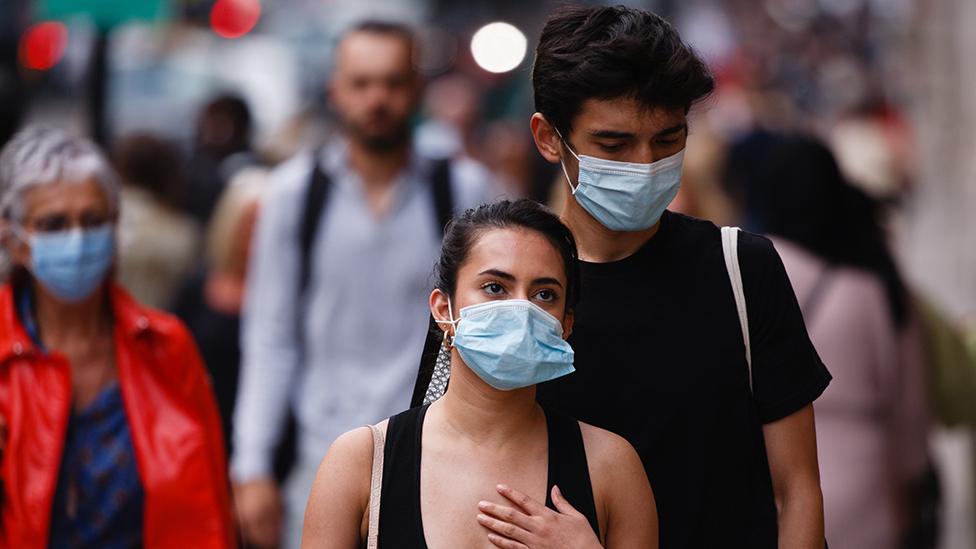Rishi Sunak: Why should I care what he says?
- Published
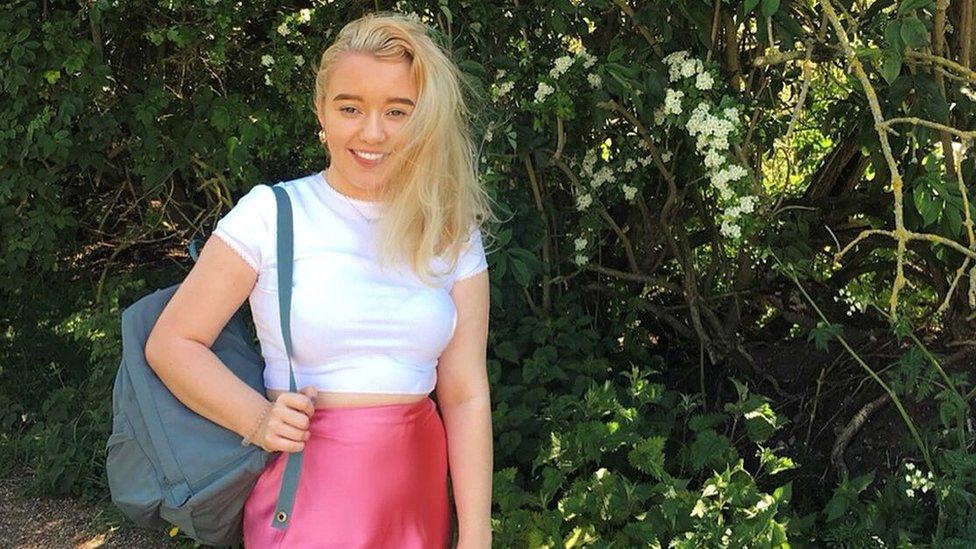
A lot of student Melissa's friends who graduated last year are struggling to find work
Waking up to the shock the UK economy's had this year, you'd be forgiven for wanting to pull the duvet back right back over your head.
Rishi Sunak probably feels the same.
But on Wednesday in his Spending Review he'll have to talk us through just how bad things are. Then he'll spell out how he plans to tackle the next year.
It's about more than just tweaking numbers. It'll give us some idea of who might get a pay cut, what areas the government wants to invest in, such as schools, hospitals and roads.
It may also tell us where jobs will be created, and if - or maybe how soon - we could be facing higher taxes.
Here's what to look out for:
When will things get better?
Melissa Aitchison, a student at Nottingham University, wants to know when the economy will get stronger.
She's financing her Master's year by waitressing in a restaurant, but even when it re-opens after lockdown she'll be on shorter hours and taking home less money.
"People aren't giving tips as much," she says, and she's worried it'll take a while for confidence to return.
"Even when we do have a vaccine and get busier I think it would take a long time because people are still wary of the [economic] consequences of corona and will be saving money," she says.
So the more Mr Sunak can do to boost general economic growth the better as far as she's concerned, even more so once she starts seriously job hunting. A lot of her friends who graduated last year are struggling to find jobs to fit their qualifications.
We're going to hear how much the economy has shrunk this year and it could be more than 10%. In normal years it grows at least a bit.
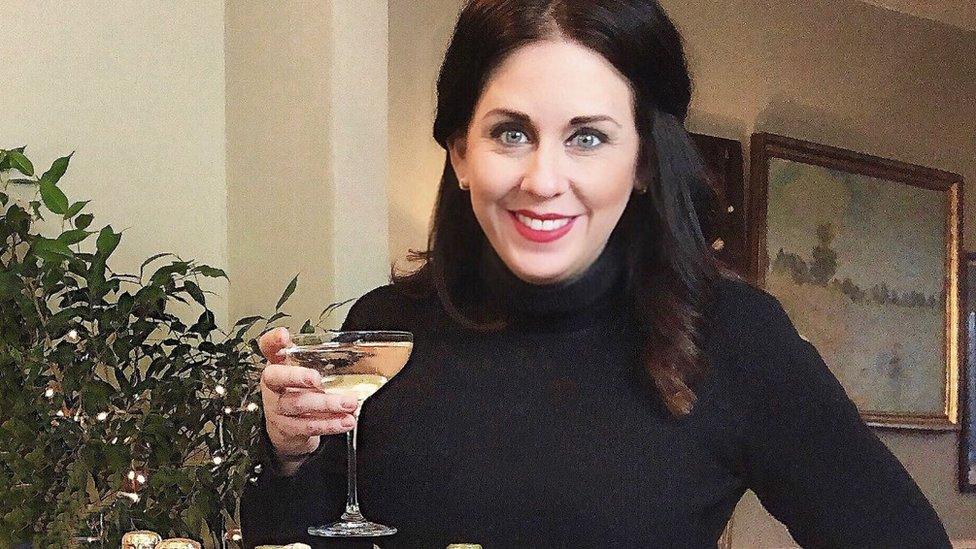
Blogger Kara Gammell
Will I get more financial help?
Anyone looking for work and relying on state benefits should listen out for what Rishi Sunak says about the extra £20 a week that was added to Universal Credit at the start of the pandemic. It is currently set to go next April.
Financial blogger Kara Gammell says if the chancellor wants to offer some good news "this is the time he might announce an extension to that".
But the chancellor's also under pressure to rein back the astronomical levels of spending triggered by the pandemic, so that may not happen.
Will I get a pay rise?
There are other ways he may look to cut back too.
Sophie Wilkes, a 25-year-old primary school teacher, wants to know if Mr Sunak will go ahead with a plan to freeze pay for public sector workers like her.
Teachers and other public sector workers had their pay frozen for nearly a decade after the financial crisis. Once inflation is taken into account, holding pay flat amounts to a pay cut in terms of what it will buy you.

Teachers are among workers who could face a pay freeze
Given how much extra work school staff at her inner-city primary in Cardiff have put in his year, Sophie thinks the idea is "a bit shocking".
Police, fire and prison officers, local government workers, and members of the armed forces could be in the same boat. But NHS staff are expected to still get a pay rise.
What about Brexit?
While the coronavirus pandemic has upended the chancellor's plans for spending, 24-year-old beef farmer and cattle breeder Matt Rollason hopes Mr Sunak will have more to say on post-Brexit plans.
"The government needs to make sure that there is seamless trade of food and agricultural goods, not just to the European Union (EU), but elsewhere too. To do that, they need to commit money to things like customs checks, border checks and admin."
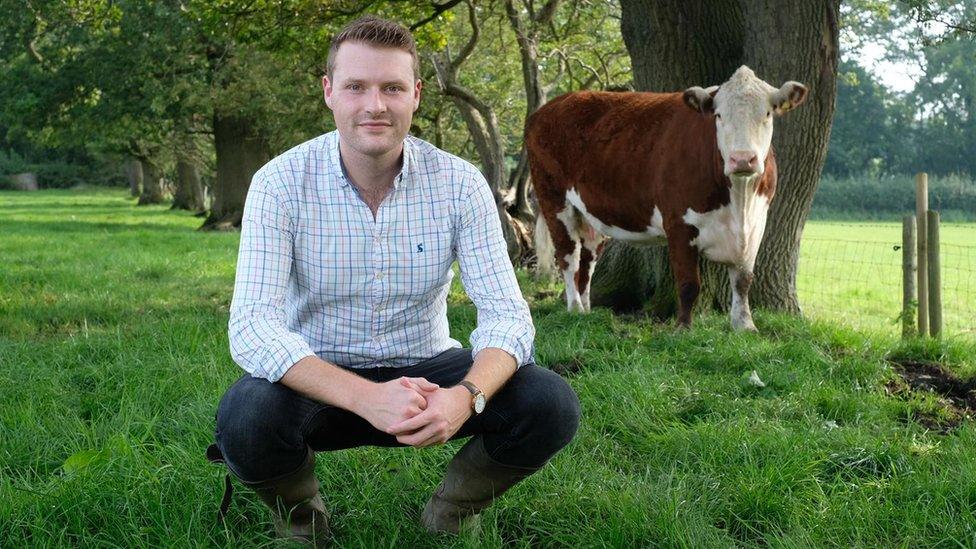
Matt says extra funding is crucial for farmers like himself
Without this extra funding, there could be a "major risk" for the "intricate and complicated" system of supplying food in the UK, Matt says.
In the long-term, the Lancashire farmer hopes that the chancellor will also back up the switch from EU farming grants to a new English scheme with a "serious amount of money".
"If the government is serious about agriculture moving to net zero emissions and the climate challenge we're all facing, that has to be in [the Spending Review]," he says.
Will I have to pay more tax?
Rishi Sunak could also hint at future tax rises to help pay for the pandemic spending - though specific changes are more likely to come in the Budget next spring.
Economists say cutting spending or raising taxes too soon risks pulling the rug from under the economy before it has had time to get back on its feet and getting the economy growing is a much better way to increase tax take.
If we are paying more tax or our pay is low we're less likely to go out and spend, points out Iona Bain who writes the Young Money blog. "And that's what's going to be needed to kickstart the economy."
Rasheed lost his fully funded place on a pilots training course due to the pandemic
Will I have more chance of getting a job?
Iona's expecting the chancellor to talk us through some infrastructure projects, especially where they could help "level up" the parts of the UK that have the deepest economic problems.
But she'd also like to see some more ambitious plans for improving the UK's digital networks and for housebuilding that could in the long run bring down house prices. That could give a boost to jobs in engineering, technology, transport, sustainable energy and construction.
"If they make good on infrastructure spending promises that could create opportunities for younger people. If for instance you are in a sector that has been really damaged by lockdown, there's a chance you can pivot, retrain."

Roni Savage is the founder of Jomas Associates
What about small businesses?
Entrepreneur and engineer, Roni Savage is hoping for a bit more clarity beyond the one-year scope of the Spending review.
What her firm, environmental engineering consultancy, Jomas Associates, needs is a sign from the chancellor that small and medium-sized businesses (SMEs) will benefit as well as the industry giants.
"He could acknowledge at this stage the importance of involving SMEs," she says. "That would be a really big win for us."
Any pledges to green the economy should benefit her firm too.
"Boris talked about building back better. We're looking for that not to just be words but action".
- Published26 October 2020
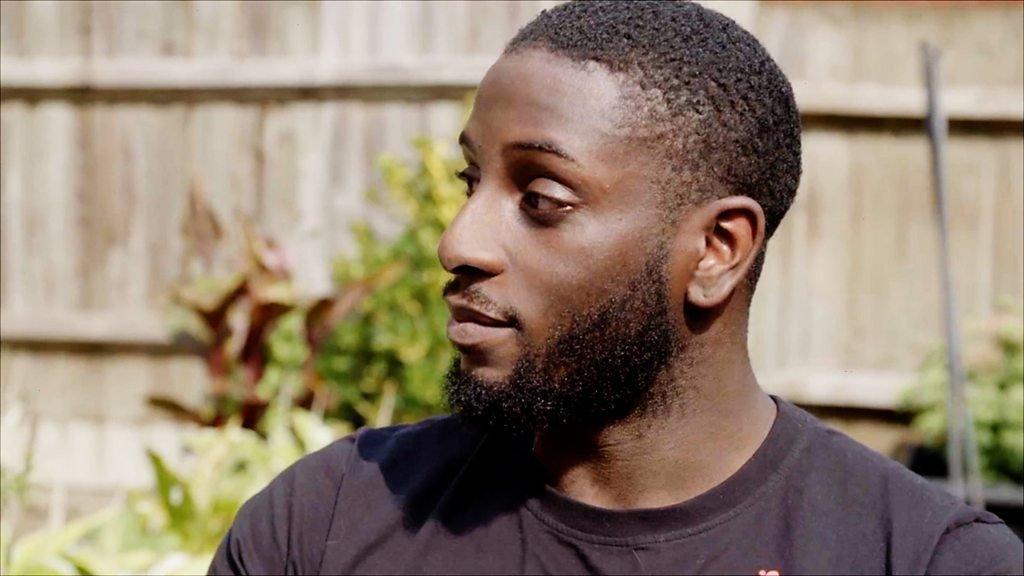
- Published25 November 2020
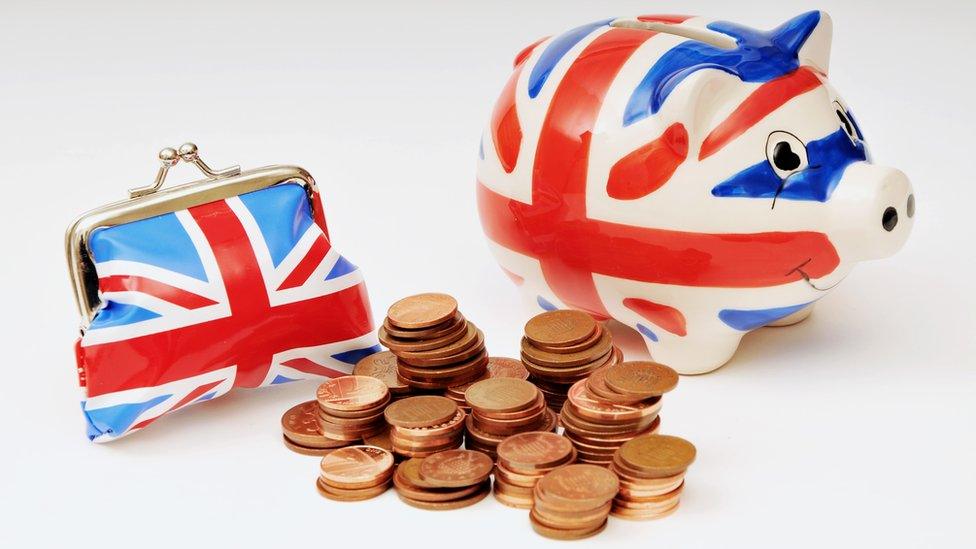
- Published28 September 2020
